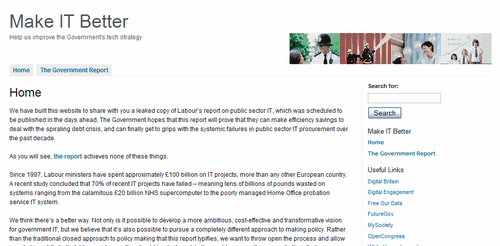Last week, Puffbox Ltd invested in a Mac. Somehow I never quite saw myself as a Mac owner: a combination of the cost, the vendor lock-in, the slightly smug grins on Mac owners’ faces – even when the kit failed, as it seems to do with unexpected frequency, judging by my Twitter stream. But my long-serving XP desktop machine is starting to show its age, and much of my work these days is in collaboration with a Mac owner, so it seemed to make sense.
I went for a Mac Mini: at its £510 list price, it’s roughly half the price of an entry-level iMac, as long as you’re prepared to bring your own monitor, keyboard and mouse. But I managed to find it for £477, at Dixons.co.uk; and after a bit of googling, I found a voucher code to knock a further £15 off it. Very pleased with myself.
I’ve spent the past few days loading it up with software. First Firefox, then a few must-have extensions, giving me access to my Google-powered email and Delicious bookmarks. A suite of browsers for testing purposes: Chrome, Safari, Opera. Dropbox, to enable easy file-sharing between machines. Twhirl, my Adobe Air-powered Twitter client of choice. And so on.
What’s been striking is that, with only a couple of exceptions, these are exactly the same apps I use most often on my XP box. (And for that matter, my Ubuntu laptop and netbook.) I needed a good code-friendly text editor, and TextWrangler got quite a few recommendations. Adium seems to be the must-have Instant Messaging client. But that was about it.
So it’s a very unexpected experience, powering up the Mac and hearing that same startup chime, which used to herald a venture into Unfamiliar Territory. A land where right-clicking was alien. A land with strange symbols dotted around otherwise familiar keyboards. Yet nowadays, there’s no immediately distinguishable difference. You press a button at the bottom of the screen to open up a menu of programs; you click on Firefox, and you’re up, up and away.
Is the Mac going to become my main machine, or will it remain a secondary box for fileserving and browser testing? At this point, I honestly don’t know.
Except, of course, that it isn’t a fair choice. If you build stuff for the web, you need to test it against all browsers. And that means Microsoft Internet Explorer. And that means Windows. So like it or not, you’re stuck with Windows at some point – be it as a virtual machine, or a secondary box. Sure, there are third-party services like Litmus or IE Netrender, which send back screengrabs of your code rendered in browsers you don’t have – but I don’t believe you’ve really tested something until you’ve clicked around in it.
Things are set to get even more complicated with the next release of Ubuntu, due in a fortnight. Like the Mac’s OS X, Ubuntu is perfectly capable of running Firefox, with its extensions, and Adobe Air, and Chrome and Dropbox. If anything, its desktop candy is even sweeter. The Mac will beat it on reliability, since Apple own the entire supply chain. But Ubuntu is at least as pretty to look it, arguably prettier… and that’s before the next release brings some new, even tastier interface themes.
There were suggestions in the past couple of weeks that Apple’s iconic ‘I’m a Mac, I’m a PC’ series of commercials may be at an end. On reflection, it’s no surprise. It just doesn’t matter that much any more. In the wake of the open source revolution, we’re all the same.
Except for Internet Explorer, which still sucks.



